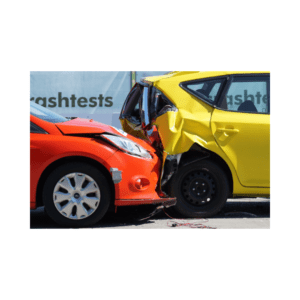Get Quotes
5MinuteInsure.com is not yet available in your area. Check back
soon!
This article has been reviewed by licensed insurance industry expert, Moshe Fishman on October 27, 2023.
If you've ever been in a car accident, you know it can be a costly and tiring experience. First, you have to deal with insurance companies. Then, there's the stress of repairing your car and figuring out how you'll get around while your vehicle is in the shop.
You might not be worried about the total cost of your car repairs as you've been insured from the moment you got a car; after all, that's what insurance is for, right? Sure, for the most part.
When it comes to car insurance, there is a fairly misunderstood and overlooked term in the claim process called the "betterment clause." In this article, we will explain what betterment is and how it can affect your claim.
Betterment in the insurance world simply means "improvement." It is a legal term used to describe improvements made to a car that improved its value to a condition that is better than it was before an accident.
Let's consider the following scenario: You go out with your friends and park your car in an alley downtown. When you return to your vehicle, you notice a dent on the back panel on the driver's side. You don't recall hitting anything and are unsure how it happened, but you decide to postpone getting it fixed as the dent is not very noticeable.
Months later, you get into a car accident, and the same side of your car is hit in a collision with another vehicle. You file a claim with your insurer, and your assigned insurance adjuster conducts a thorough investigation to determine the cause and assess the extent of the damage.
It is concluded that most of the damage is the result of the accident, but some of the damage, such as the dent you noticed a few months ago, was pre-existing and had nothing to do with the collision. What would happen next?
Well, you might receive a betterment charge from your insurer explaining that the difference in cost between the repair of the back panel and what it would've cost if the panel was undamaged would be your responsibility. This repair would make your car better than it was before the accident, and therefore, your insurer may be entitled to a betterment charge.
When an agreement between you and your insurer is formed through a policy, the insurer agrees to repair the costs of damage to your vehicle in an accident and return your car to the state it was in before the accident happened, not more or less.
Betterment can be charged on the replacement or repair of "wear-and-tear" parts, as well as parts that were damaged prior to your accident, like in the example above. After you file your insurance claim, an adjuster will be assigned to your claim to investigate the damage and determine betterment charges, if any. You would then receive a betterment charge from your car insurer stating that they will not cover the total cost of repair or replacement.
The betterment clause in car insurance assumes that you must have taken appropriate care of your vehicle to ensure it was working properly at the time of an accident and that you were not responsible for any pre-existing damage or defects.
When your car has been damaged in an accident, and older or already damaged parts are replaced with new ones, your car is then considered as being "better." Consequently, insurers may ask you to contribute to the cost of improving the condition of your vehicle.
The betterment charge does not depend on who is at fault for an accident; you can be blameless but still receive betterment charges if your car is in a better condition than before the accident. Remember, the insurer's goal is to bring your car to the same condition it was before the accident.
So we've covered what betterment is and some of the basics of how it works. If you feel that the betterment charge should not have been applied, you can file an appeal to have the betterment charge negotiated:

So, now you know why betterment charges are applied to insurance claims and what you can do if you receive a betterment charge. To learn more about betterment charges and how they are applied to your insurance claims, it is always recommended that you review your policy carefully and contact your insurer with any questions.